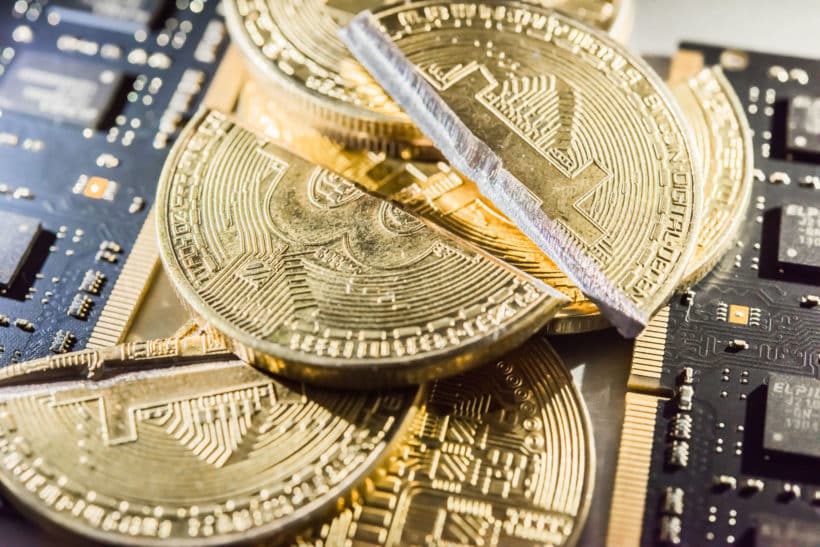
S3studio | Getty Images
Bitcoin is nearly a year away from a key technical event — which might be the catalyst for a prolonged climb in the cryptocurrency’s value.
In April or May 2024, bitcoin is expected to undergo its next so-called “halving,” though the exact date is not yet known.
Bitcoin has been rising in the past few weeks in anticipation of the halving, as a potential U.S. Federal Reserve interest rate cut contends with the prospect of sluggish growth and tightening credit conditions resulting from woes in the banking sector.
One bitcoin was worth roughly $30,000 as of Wednesday morning, according to data from CoinGecko. The world’s largest cryptocurrency is up by more than 80% since the start of the year.
Vijay Ayyar, vice president of corporate development and international at crypto exchange Luno, said that the bitcoin jump above $30,000 at a time of bank failures and economic uncertainty suggests the cyclical “bottom” for bitcoin is forming.
“This tends to happen a year or so prior to the Bitcoin’s halving event, which is slated next for around April 2024,” Ayyar told CNBC via email.
What is the bitcoin halving?
Bitcoin halvings take place roughly every four years, or every time another 210,000 “blocks” are added to the blockchain. The event cuts the rewards to bitcoin miners — volunteers running specialized equipment to validate transactions on the network and mint new tokens — by 50%. The aim is to reduce the number of new bitcoin unit released into the market.
Currently, bitcoin miners receive 6.25 bitcoin for each block they successfully mine. This means their computer had the right amount of computing power needed to solve the cryptographic puzzles that secure the bitcoin network and prevent it from being compromised by malicious actors.
Once the next bitcoin halving occurs, this reward will be reduced to 3.125 bitcoin.
Backers of the cryptocurrency say this can help push up the price by enhancing bitcoin scarcity.
The maximum number of bitcoins that will ever exist in circulation is capped at 21 million. This is ensured by the halving mechanism, whereby rewards for mining bitcoin will eventually be slashed to $0.
Before the last halving, which took place on May 11, 2020, the price of bitcoin increased by 19% in the preceding 12 months, from $7,191.36 to $8,568.88, according to figures from CCData.
During the halving before that — which occurred on Jul. 9, 2016 — bitcoin rallied 142% compared with the 12 months prior, moving from $269.14 to $651.83.
The first ever halving of Nov. 28, 2012 saw the price of bitcoin balloon by 384% to $12.35 from $2.55, CCData’s figures show.
“Analysing historical Bitcoin halving patterns, it appears that investors often accumulate Bitcoin in the run-up to the halving event, although the exact timing and extent of returns post-halving can differ,” Jamie Sly, analyst at CryptoCompare, told CNBC.
“The accumulation period from the market bottom after the breakout to the halving date has historically spanned at least 500 days.”
Sly added: “This would mean, if we were to assume that the market bottom for this cycle was in November last year (when Bitcoin hit a yearly low of $15,760), then we are only 142 days into the current cycle. This would correlate with the next expected Bitcoin halving date, which is another 378 days ahead.”
The halving before that, which took place on Jul. 9, 2016, saw bitcoin skyrocket 2,824% to a then all-time high of $19,065.71 by mid-December 2017.
Bitcoin had a torrid 2022, defined by the collapses of major companies and projects, from stablecoin terraUSD to crypto exchange FTX.
Rising inflation led to higher interest rates in the U.S. and in other major economies, which in turn caused investors to flee bitcoin and other risky assets.
That has seen prices of several top digital currencies slump sharply from their all-time highs.
Despite its recent ascent to $30,000, bitcoin is still down more than 50% from the highs of November 2021.

